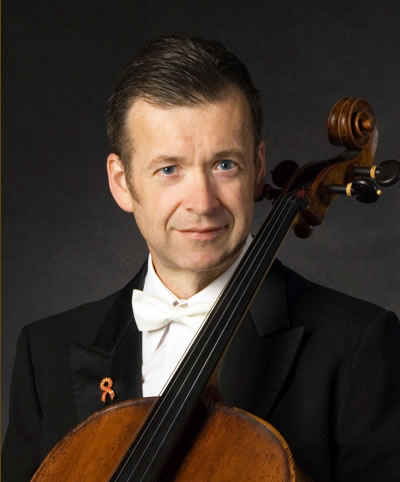Memories of my time with Pierre Fournier
I will never forget receiving a phone call early one morning from Eleonore Schoenfeld. The year, if I recall, was 1967, which would have made me fourteen years old. She instructed me (and my parents) to go to the Dorothy Chandler Pavilion that night and hear Pierre Fournier play the Dvorak Concerto with Zubin Mehta and the Los Angeles Philharmonic. It was a night that changed my life. I was already aware of Fournier as an artist. My mother had bought me his recording of the Couperin Pieces En Concert and the Vivaldi E Minor Concerto, which I had learned the year before. But hearing his majestic and elegant playing in person was a revelation. The orchestra had just recently acquired the “General Kyd” Stradivari, on which Leo Stern had played the premier of the Dvorak, and Fournier played the performances on that Strad, courtesy of Kurt Rehr, the principal cellist at the time.
Over the years, I collected all of Fournier’s LPs, during the height of his legendary recordings for Deutsche Grammophon. He became (and remains) my all-time favorite cellist. I always had it in the back of my mind that I wanted to study with him. Fast-forward a few years to 1972, and the opportunity presented itself. I was attending USC, which was TOTALLY the wrong school for me, and I was looking at other options. Fournier came to Phoenix, Arizona to perform with the Symphony. I arranged to go there to meet him and play for him.
I remember nervously knocking on his hotel door, and when he opened it, there he was, in person, the man from all of my record covers. He was so kind, spending a couple of hours with me. I played the first movements of the Dvorak and Haydn D Major Concertos. He liked my playing, and arranged for me to study with him in Geneva.
The following summer I moved to Switzerland, and began my studies with him. The first course of study that summer was in his master classes in Zurich. For a boy from Pasadena, being in Europe for the first time and playing in a public master class for the first time, and playing for my idol - it was a bit intimidating. I attempted to do the Schumann Concerto. I got through the opening page rather nervously. He stopped me, told me to go back to the beginning, and play it without vibrato. I tried that and it sounded dreadful beyond words. Luckily he didn’t let me suffer for too long. He stopped me, signaled to the pianist to start again, and then he proceeded to play the opening page almost without vibrato, yet the beauty of expression, richness of sound, and the essence of his playing were still there. As I watched and listened, I found my eyes gravitating towards his right hand, and marveling at what it was doing. I realized at that moment how utterly inadequate my right arm was, and how I was using vibrato to create (and cover up) everything. Over the next couple of years we worked a lot on the “elasticity” of my bow hand. I used to chuckle during his master classes, as I discovered that whether he was speaking French, English or German, the word “ELASTICITY” was common to all three.
Another common theme in lessons was the respect for rhythmic integrity. He used to say, “You know, John, my dear, it is very possible to play rhythmically and expressively at ze same time.” He played with an amazing sense of rubato, but the rhythm was never distorted.
I also had the privilege of working on pieces that had been written for him, notably the Poulenc Sonata and the Martinu Sonata No.1. I took the Poulenc to a lesson one day and, as I sat down, he asked me what I was going to play. When I replied that I had brought the Poulenc, he raised an eyebrow and said, “You know, John, my dear, I love Monsieur Poulenc’s music very much, but it is not very friendly to ze cello!!!!” Understatement of the year!!!! But he showed me how he had worked it out, and how important it was to “anticipate ze new position”.
During the year and a half I spent with him in Geneva, I studied virtually all the major repertoire, and not only got a glimpse into his incredibly clever fingerings, which he was more than happy to share, but also learned practical solutions about performing these works from someone who had spent a lifetime on the major stages of the world playing them. I returned for master classes in the summers of 1976, 1978, and 1980.
I still keep in touch with his son, Jean Fonda, and in 2006, together with my long-time pianist Edith Orloff, played a tour throughout the US and Europe honoring his centennial. I played the Vivaldi/Couperin pair, and the Sonatas by Poulenc and Martinu. I like to think I am carrying on, at least to some degree, his legacy of elegance and respect for the music.











